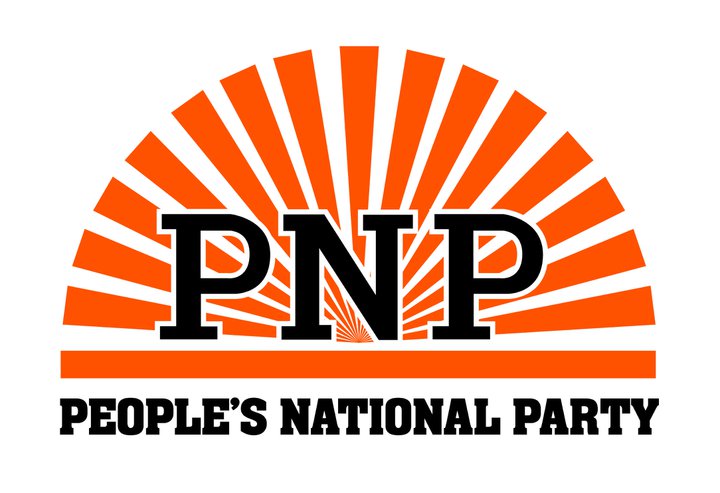
Two periods of seismic social and economic transformation (1955-61 and 1972-77)
Possibly the biggest criticism of the post-Michael Manley era has been the abandonment of educating the rank-and-file members about the two seminal periods of economic and social transformation. The Norman Manley foundational reforms of the 1950s and the 1000 Days democratic socialism experiment of the 1970s, fundamentally changed Jamaica forever.
It was only after Manley’s PNP victory in 1955, that the British were more comfortable starting the real process of “self-rule” for Jamaica. Unlike Alexander Bustamante, Norman Manley was seen as a “polished and erudite” lawyer and gentleman and an Oxford Rhodes’ Scholar to boot”.
From late 1939 and early 1940 the Morne Commission — which investigated the 1930s unrest in the West Indies — had indicated that Jamaica and Barbados “were advanced enough to govern themselves.”
However, three main factors prevented the British from seriously following up with the recommendation. These were the declaration of war in 1939; the belief that England could not fight a war in Europe and deal with colonies agitating for independence at the same time; and the influence of an organized labour movement and the possible specter of persons like Bustamante riling up a nation was paramount in the minds of Colonial Office.
In this regard, the colonies passed laws (“The Defence of the Realm Act”) giving the Governors the power to imprison “troublemakers” during the war years. In Jamaica, Bustamante was locked up for 17 months from 1940 to 1942.
Suspicion of Bustamante and his “pedigree”
Even though the JLP won the two elections after Adult Suffrage (1944 and 1947) and Bustamante was even elected as Mayor of Kingston (1948), the Colonial Office correspondence indicated that the British were not comfortable with Bustamante. The Oxford-trained and “gentile scholar” Norman Manley was considered more acceptable. He was likely to be reasonable if, and when the issue of a transition was to be considered. The process of offloading colonies began with India/Pakistan (1947) and Ceylon (Sri Lanka) in 1948. Pressure from the USA would speed up the anti-colonial process during the 1950s and 60s.
Norman Manley – the Man with The Plan (1955 -1959)
From as early as 1949, the PNP was considered the more popular party as it received 43.5% of the popular votes but four fewer seats than the JLP. The number of voters not voting for the incumbent JLP government in 1949 was 257,641 or 57%, making the JLP technically a minority government in its second term in office. Colonial Office correspondence indicated that the PNP’s growing popularity made a likely electoral victory eminent.
Shift in the British political landscape to a more socialist Labour Party after the war all but guaranteed a PNP victory in the 1955 general elections. The party won the outright popular vote and an absolute majority by eliminating all independent parties from the electoral landscape for good. In addition, it gained three of the JLP seats in the process. Norman Manley campaigned on the slogan “Manley, the man with the plan”.
The JLP had up the ante with a clientelistic strategy of “if the people want salt fish, give the people salt fish”.
The Plan
With all the hype of the 1000 days of Michael Manley’s socialist programmes in the 1970s, they pale in comparison to the nearly 1000 legislative changes instituted under Norman Manley. It was these social and institutional changes that were to form the basis for an independent Jamaica in 1962. These changes were significant and far-reaching.
Norman Manley’s election in 1955 brought about a greater direct management of the elected members of the Legislative Assembly to prepare and administer the country’s budget. Manley became the first Chief Minister with a working “Cabinet” to run the country’s affairs. This allowed Manley to institute wide-ranging social and economic programmes during his seven years in office. These included changes in the areas of education (e.g. common entrance or expanded Grant-in-Aid), welfare institutions and local government reforms, highways, financial regulations, removal of taxes (for example bicycle taxes), expansion in commerce, and “industrialization by invitation”, land reforms, expansion of bauxite and tourism the list goes on. Noteworthy is that these reforms were generally acceptable in the broader context of a global trend toward state involvement in social and economic development.
Indeed, the legislative changes between 1955 and 1961 resulted in the highest growth rates that Jamaica would ever experience over any six years. During the period 1955-61, the economy grew by an average of 10% per annum. While the period 1950-55 showed comparable growth, the economy was effectively being controlled by the Governor, from the Colonial Office at Whitehall in England. Agreements with the bauxite companies, treaties, immigration, education, trade, and exports (excise duties e.g.) were being closely monitored by England.
There is the view that being mindful of the imminent decolonization, England was strategically pushing the economy in a capitalist/market driven direction.
What has not been stated enough was that the change in the perspective of the new Labour government in Britain was aligned to the PNP. Also, there was the USA’s increased pressure for dismantling of imperial structures globally. Also, the USA was firm on dominating countries in the region (driven by ideas such as the Monroe Doctrine, and Manifest Destiny). European countries’ post -war dependence on US aid and capital made them all fall in line.
Independence and Increased Inequality
The post-independence years resulted in a marked reduction in the legislative agenda. The Government by and large maintained most of the social reforms and in some cases improved on them. An example was Edwin Allen’s reversal to make primary school children receive the majority of places in the common entrance examinations (70% from 30%). This was significant as virtually all prep school children had previously got places in high school before this. The remaining places were being ‘raffled’ among the tens of thousands of primary school candidates. This was a correction of a gross travesty of the unequal use of state funds. More importantly, it was perpetuating a practice of denying opportunity to most of the lower middle and lower classes in the country.
Inequality and Social Unrest
By the second half of the decade of the 1960s, there was little or no meaningful attempt at creating real opportunities for approximately 75% of the population. In addition, the rapid economic expansion of the 1950s and the high expectations after independence did not bring significant social advancement for most of the population.
In hindsight, the government did not want to make any bold or radical change to the social and economic status quo. Bustamante’s party which was worker-based was now captured by the former Farmers Party and the new industrial/commercial elites. The partnership was created by the two parties in their effort to defeat the PNP in the Federation referendum of 1961 and the general election that followed. By the end of the decade of the 1960s this ensured that no meaningful and fundamental changes occurred under the JLP.
However, rural migration to Kingston and the main towns resulted in sprawling urban slums, increased unemployment, and pressure on social institutions (schools, clinics, etc.). Classic urbanization problems were escalating, and the Government responded with oppressive measures. These measures were influenced mainly by the urgings of the upper middle classes who insisted that the government “should do something”. Statements such as “shoot first and ask questions later” (Hugh Shearer) or “bring in the Rastas dead or alive” (Bustamante) were rooted in a philosophical position and a need to pacify the elites (that the government was “doing something”).
The notions of implementing structural changes that would result in removing class and other biases or prejudices were never seriously actualized. To make matters worse, racial unrest in the United States, and a growing radicalization of high schools and tertiary institutions, were finding fertile ground in the younger population. Social fringe groups (e.g. Rastafari) were becoming attractive to angry and curious young people from all classes. Also, the common entrance now caused children from ‘uptown and downtown’ to meet daily. The country was ripe for social unrest. In the economy, creeping inflation, relatively low wages, growing unemployment, and political violence were to be the fuel for the ever-approaching fire.
The 1968 riot was a watershed. The upper middle classes, the Chinese, and the colonial relics from “upper Saint Andrew” started to gradually leave the country. At best, they established two homes and traversed weekly or monthly between Florida and Jamaica. It was the new emerging middle class and the “moving uptowners” that were sticking it out.
Shades of the French Revolution
It was these groups, either out of self-interest and/or a genuine loyalty to the country, that would turn to Michael Manley. They rightly saw the impending class confrontation and violence — violence, which they rightfully perceived would not remain “below Cross Road for long”. Like the signs before the French Revolution, there were growing envy and disgruntlement and there was no real medium through which the people were being heard. Historically, bottled-up discontent was never permanently suppressed. The upper-middle-class groups saw Michael Manley as “one of us” and felt that his links with the labour movement and his charisma were more than qualifying characteristics.
His Sunday evening “fireside broadcasts” on RJR were both reassuring to the upper and middle classes, and they virtually ensured that the JLP would have only two terms in office.
Better must Come
In hindsight, the PNP’s victory in 1972 was more the doing of a social movement rather than “a masterful campaign’ by the party. 1972 was a mild rerun of 1938 without the histrionics and leaders standing in front of colonial guns or police with batons. There was a saner pragmatic acceptance that changes had to happen and even the very conservative upper class grudgingly acknowledged that. The songs of the 1960s were scrapbooks that told the story of “rude boys”, “shanty towns”, police brutality, and social inequality. “The rise in the price is to make more money for who got plenty…and the trick of the trade is to keep all the hungry bellies empty (Bob Andy 1975”. Even the blindknew that the PNP would win the 1972 general elections.
Everyone was expecting solutions. The upper classes initially saw Michael Manley as a more energetic and “charming” Norman Manley and a ‘fine chap’ if they should say so. The middle class saw him as the one to let out some of the pressure, lower the social temperature, and ward off the impending confrontation. The lower classes’ expectations were summed up in one slogan “Better must come”.



